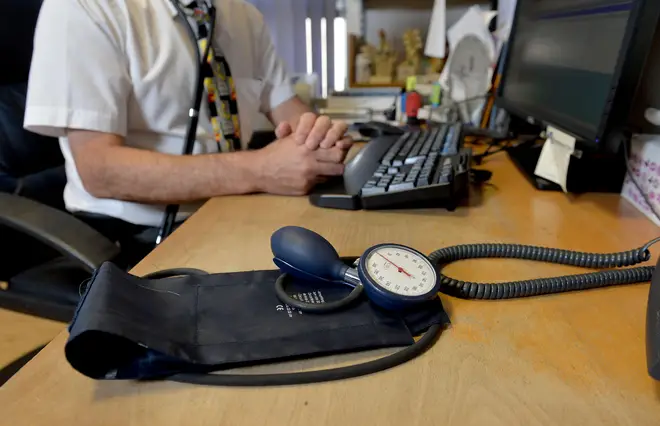
Ben Kentish 7am - 10am
29 November 2023, 08:39

Holding GP appointments over the phone or online could harm patients, a new study has revealed.
The report, led by the University of Oxford, conducted an analysis of remote NHS doctor consultations between 2020 and 2023.
The study found that “deaths and serious harms” had occurred as a result of wrong and missed diagnoses, and delayed referrals.
It comes after the pandemic saw face-to-face GP appointments dip by less than half.
Restoring face-to-face appointments has been labelled a priority by several health secretaries since, including by Steve Barclay who last year promised to name GPs who would not see patients in person.

Ex-health secretary discusses reports that receptionists are responsible for deaths after failure to
Read More: Nurses 'disgusted' as doctors reach bumper pay deal with government as they warn of more strikes
Up to a third of GP appointments are now conducted virtually after the pandemic.
But the report, published in the British Medical Journal (BMJ), suggests that doctors should not give telephone appointments to those who are elderly, deaf or technophobes.
Researchers noted that incidents of death or serious harm caused by remote consultations were “rare” and that the vast majority were safe.
Experts examined 95 serious safety incidents that have occurred in Britain since 2020 where patients came to harm.
Among the errors made over the phone were missed diagnoses and underestimating the severity of a number of conditions.
Sepsis, cancer, congenital heart disease and diabetic foot complications were among some of the conditions missed or underestimated.
These conditions “would likely have been readily diagnosed with an in-person examination” the report said.
Patients who were particularly young or old, or had urgent conditions such as new chest or abdominal pain, palliative care, physical injuries or diabetes were at the most risk of coming to harm.
In one incident, a 16-year-old girl died from sepsis after she was mistakenly diagnosed with glandular fever by a GP over the phone.
In another, a new mother died from a missed pulmonary embolism.
It also found that distracted receptionists were responsible for deaths after failing to call patients back.
A woman in her 70s who called in with sudden breathlessness died after the receptionist was distracted by a patient in the waiting room and failed to call her back.
Researchers also found that GPs are more likely to be swayed by what patients have previously been told and repeating past diagnoses and less qualified staff are more unlikely to act on signs of illness.